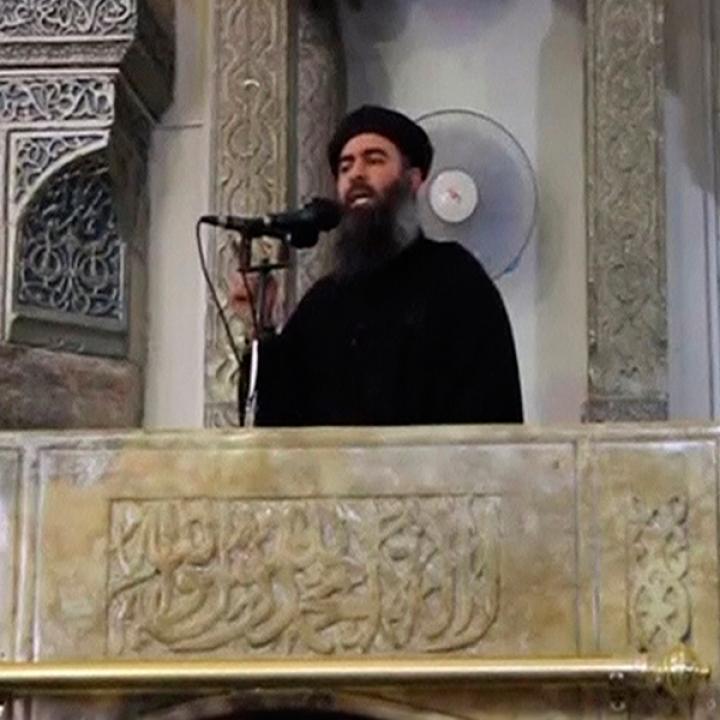
- Policy Analysis
- Articles & Op-Eds
The 'Black Swans' Flying Over Foreign Fighters

The best line of defense for regional states worried about the threats posed by ISIS -- including unexpected game changers like Ebola -- is to enhance border and port security.
The recent Ebola scare in areas controlled by the Islamic State of Iraq and Syria (ISIS) should be a wake up call for Middle Eastern states of the unforeseen dangers of lax border security and vetting of migrants. But for ISIS itself, the incident should be a stark warning of the "black swans" -- unexpected events with often game-changing impact -- that accompany the continued use of foreign fighters.
As coalition aircraft continued to pound ISIS positions on the eve of the New Year, unconfirmed reports out of Mosul of ISIS militants showing up at hospitals with Ebola-like symptoms sent shock waves through public health and foreign policy circles. The Ebola outbreak in West Africa, which has infected nearly 22,000 and killed nearly 8,600 in that region, has proven hard to contain with death rates averaging around 50% and cases reaching as far as the United States and Europe. Through closely working with state disease control authorities and the World Health Organization, countries where individuals have travelled to infected areas and later contracted the disease have been able to contain the spread of Ebola -- at least so far.
The WHO and Iraqi Ministry of Health have since determined that the reported cases were not Ebola. Nevertheless, such reports emanating out of ISIS controlled areas are but the latest in a laundry list of unforeseen threats emanating from the self-declared caliphate. For the international community, the lack of contact with ISIS meant there was no way to effectively share containment protocols and procedures other than through the internet and media. There was also no way to monitor infected individuals and efforts to contain the disease. For various authorities in Iraq and Syria, as well as the countries that border ISIS controlled areas, the reported Ebola-like cases were an indicator of the unforeseen health and security dangers ISIS and the growth of ungoverned spaces across the Middle East pose for everyday citizens, even in areas under strong state control. This was also not the first public health risk potentially connected to the flow of foreigners to Syria and Iraq -- an outbreak of polio in the Euphrates valley was attributed to a strain originating out of Pakistan, begging the question of how the debilitating disease traveled thousands of kilometers to infect Syria children.
BEST LINE OF DEFENSE
As public health authorities in the Middle East implement measures to protect their populations from disease, the best line of defense for regional states worried about the threats posed by ISIS involve increasing and enhancing border and port security. This will not be achieved simply by increased patrols and building sand berms to deter trucks crossing borders as the Assad regime half-heartedly tried and failed to do in 2005 on its border with then U.S.-occupied Iraq (much to Assad's chagrin). Rather, regional states need crack down on illicit trafficking that benefits not only smugglers, but the officials they often bribe to allow what they believe is simply merchandise to arrive outside security and customs control. Increased vetting of migrants from North Africa to Italy, Greece, Lebanon, and other Mediterranean ports is also key to stemming the tide of potential persons infected with Ebola.
For ISIS, the Ebola scare highlights the "black swans" flying over foreign fighters who may be eager to wage jihad but either didn't receive childhood immunizations or come out of areas like West Africa where Ebola is killing thousands. Either way, their involvement in the fight in Syria and Iraq threatens not only to undermine the cause of jihadists like ISIS, but to introduce irrevocable harm to civilians under the self-styled nascent caliphate, threatening its appeal in the short and long term.
Anyone looking at Ebola or other diseases as a potential biological weapon is also playing with fire -- not only is the disease difficult to control at home, but can lead to unforeseen consequences, including increased military action against ISIS that would precipitate the end the "caliphate." The specter of Ebola-infected jihadists used as weapons would be viewed by ISIS's Sunni base as a threat to regional and personal security, which would only solidify if not cement regional support for the Global Coalition to Counter ISIS.
Andrew Tabler is a senior fellow in The Washington Institute's Program on Arab Politics.
Al-Arabiya



